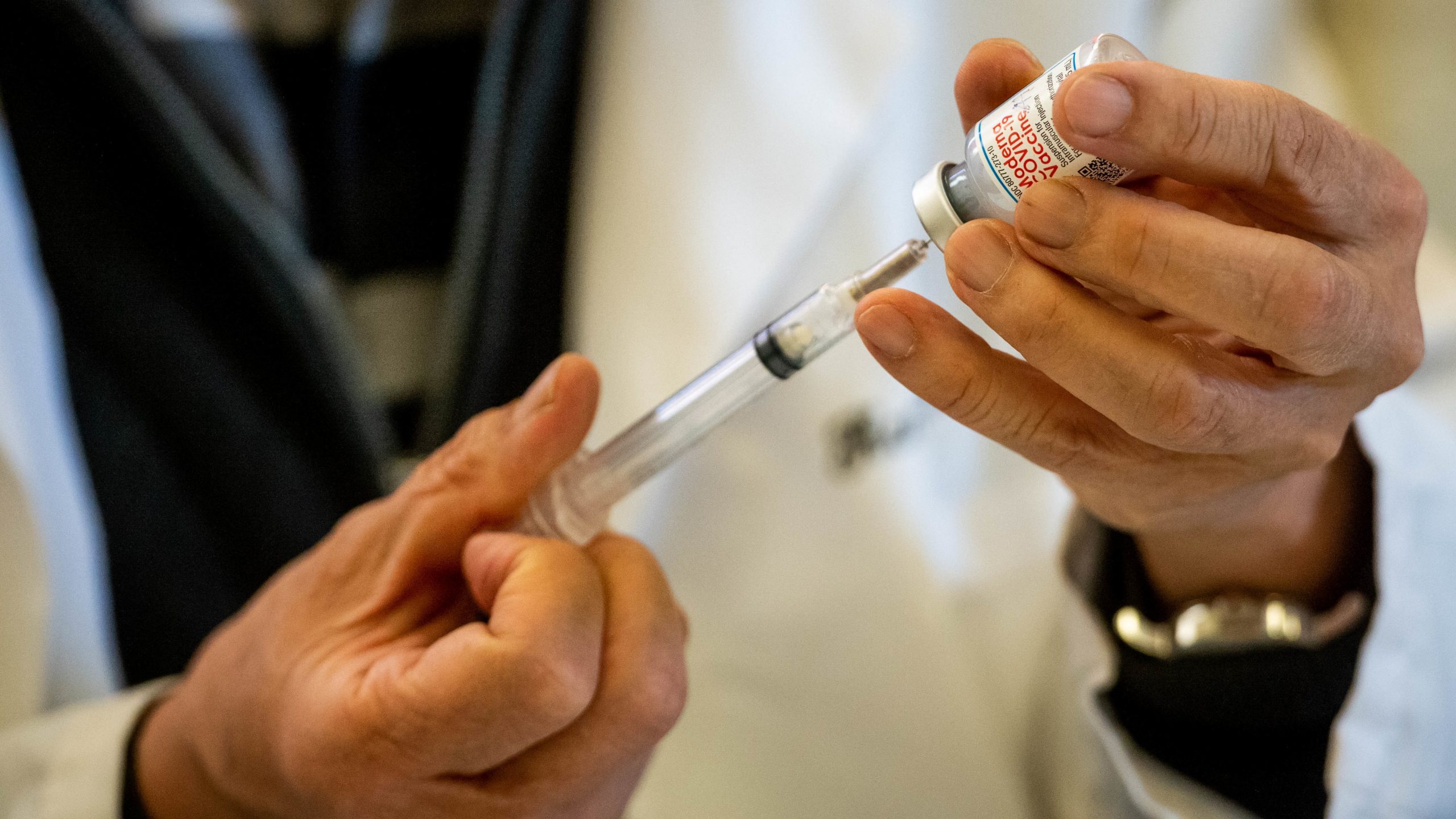Covid-19
Lawyer accuses health agency of ‘stonewalling’ in case involving people injured by COVID shots
Published
10 months agoon

Lawyers for Children’s Health Defense (CHD) on Friday accused the National Institutes of Health (NIH) of “stonewalling” in a legal case involving CHD’s Freedom of Information Act (FOIA) request for documents related to correspondence between NIH researchers and vaccine-injured people who contacted the agency regarding the effects of the COVID-19 vaccine.
In an opposition to the motion to dismiss filed last week, CHD challenged the NIH’s claim that the FOIA request was “broad and vague” and that it did not “reasonably describe” the requested records.
Kim Mack Rosenberg, CHD acting general counsel, told The Defender: “CHD long ago requested specific records from NIH and even identified specific NIH employees whose records NIH could search for responsive documents. In its latest attempt to avoid production, NIH has moved to dismiss the complaint that CHD had no choice but to file in response to NIH’s continued stonewalling.”
Rosenberg argued that based on the applicable case law, NIH will not be able to get out of providing the requested documents.
“This is especially true after NIH admitted months ago that it had the information necessary to process CHD’s request and it’s now trying to wriggle out of that admission with baseless claims that CHD’s detailed request did not reasonably describe the documents sought,” Rosenberg said.
READ ALSO: Study of Pfizer COVID vaccine suggests some people got highly dangerous shots
CHD sued the NIH in federal court in April, alleging that by failing to deliver the FOIA’s documents nearly six months after the initial request, the NIH had violated the legal time limits for responding to a FOIA and is withholding crucial information from the public.
NIH sought last month to have the lawsuit dismissed, which would allow it to avoid providing the records completely. NIH alleged CHD’s request was “shocking” in its breadth and fulfilling it would place “undue and unreasonable burdens” on the NIH.
But through earlier back-and-forth communication with NIH, CHD had narrowed and specified its request and provided NIH with a list of 10 people whose communications should be searched and even a list of search terms that should be used to locate the documents.
NIH confirmed the information CHD provided was sufficient and that the FOIA request was being processed. But it never fulfilled the request.
CHD’s lawsuit alleges that in early 2021, multiple people experiencing severe ongoing health problems after COVID-19 vaccination — including cardiovascular, neurological and muscular issues — contacted NIH researchers.
The NIH brought some of them in for testing and treatment, as reported in a Jan. 20, 2022, article in Science, and documented some of that work in a publicly available paper that detailed an observational study NIH carried out on 23 people reporting neuropathic symptoms after COVID-19 vaccination.
READ ALSO: Confidential EU documents reveal thousands die from Pfizer COVID-19 vaccine
Several vaccine-injured people, including Brianne Dressen, founder of the React19 nonprofit that supports people with long-term COVID-19 vaccine injuries, also detailed their interactions with NIH to The Defender. They reported that NIH was initially responsive and investigated their injuries but later abruptly halted communication with them.
In its opposition to the motion to dismiss, CHD detailed how its FOIA request specified the context that gave rise to the request, including the published documents where NIH acknowledged its communications with vaccine-injured people.
CHD said the request included the subject matter, timeframe, the research activities in connection with the affected individuals, and the names of 10 NIH researchers — Avindra Nath, Anthony Fauci, Alkis Togias, Farinaz Safavi, Lindsey Gustafson, Brian Walitt, Tanya Lehky, Amanda Wiebold, Angelique Gavin and Yair Mina — whose communications should be searched.
READ ALSO: Hospital protocols killed my daughter, not COVID-19, woman insists
CHD named the “affected individuals” as any member of the public who experienced health issues following vaccination and reached out to the NIH for assistance.
Initially, NIH informed CHD that the request was overly broad, so CHD narrowed its request to include specific search terms NIH could use to search the communications of the ten researchers.
CHD insisted that regardless of whether NIH was specifically tasked with investigating adverse events, the FOIA request consisted of records NIH had with injured individuals, as it has publicly acknowledged.
In its motion to dismiss, NIH said CHD’s request is deficient because it did not sufficiently specify the affected individuals, stating “Even were this information lurking in some corner of the internet, FOIA does not require agencies to become requesters’ investigative agents.”
CHD alleged that rather than interpreting the request liberally, as it is legally obligated to do, the NIH argued the request was overly broad by focusing in on a single aspect of the request — the definition of “affected individuals” — while disregarding the rest of CHD’s description of “records sought,” which provided other search parameters that define a specific and reasonable search task for NIH.
Trending

 Health & Fitness3 days ago
Health & Fitness3 days agoMalaria Vaccines in Africa: Pastor Chris Oyakhilome and the BBC Attack

 Featured7 days ago
Featured7 days agoPolice reportedly detain Yahaya Bello’s ADC, other security details

 Education1 week ago
Education1 week agoEducation Commissioner monitors ongoing 2024 JAMB UTME in Oyo

 Aviation5 days ago
Aviation5 days agoWhy some airlines are avoiding Nigeria’s airspace–NAMA

 Business1 week ago
Business1 week agoMaida, university dons hail Ibietan’s book on cyber politics

 Business7 days ago
Business7 days agoDebt servicing gulps 56% of Nigeria’s tax revenue, says IMF

 Crime1 week ago
Crime1 week agoPolice take over APC secretariat in Benue

 Aviation4 days ago
Aviation4 days agoJust in: Dana airline crash lands in Lagos

